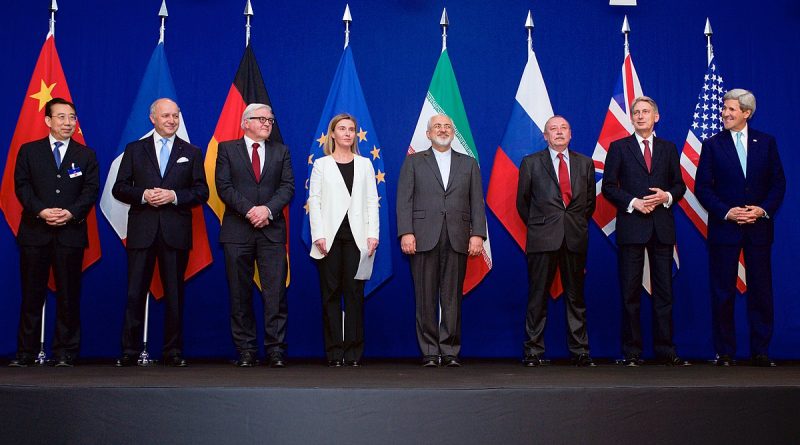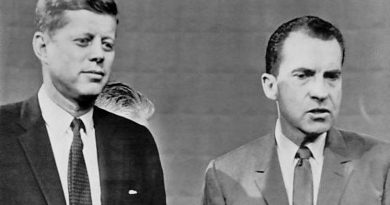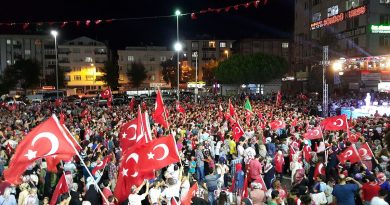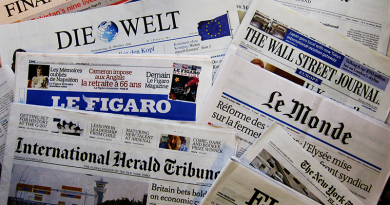The USA’s withdrawal from the Iran Nuclear Deal
Is the debate about the nuclear deal about the deal or about Iran’s power and influence in the Middle East?
If Trump’s decision to violate the deal is baded on keeping Iran from gaining more leverage in the Middle East, it would make more sense to stay committed to the deal and eventually negotiate to make it permanent. Thusfar, the International Atomic Energy Agency and US intelligence agree that Iran has been in full compliance with the JCPOA since it was signed. In this case, it is the US that has been failing to live up to its own commitments.
What interests have the US had in walking away of the deal?
The US feels it can squeeze more from Iran by mounting pressure on it, hoping that internally these pressures will create internal strife and wrangling between state and society. The objective is regime change and by violating the agreement (it is a violation of a legal document – an agreement as this is not a treatise a state can simply abandon – it is a violation), the US is provoking Iran. Either Iran gives in and accepts a new deal which limits its support for its proxies and surrogates in the Middle East and it scales back Iran’s missile programs; or, the US will pressure Iran by fuelling tension between hardliners and moderates, by mounting economic pressures by slamming down sanctions, and stirring internal unrest in the hope for regime change.
Has the development of the war in Syria has influenced Trump’s decision?
Trump’s decision was not motivated simply by a desire to counter Iran’s various regional activities, such as its support for Bashar al-Assad’s regime in Syria and Hezbollah in Lebanon. If that were his goal, the logic would have been to stay in the deal and to rally up other countries to join the US and pressure Iran. Violating the JCPOA is based on the desire to keep Iran in the ‘penalty box’ and prevent it from establishing normal relations with the outside world. This goal unites Israel, the hard-line wing of the Israel lobby (e.g., the American Israel Public Affairs Committee, Foundation for Defense of Democracies, United Against Nuclear Iran), and hawks like National Security Advisor John Bolton and Secretary of State Mike Pompeo.
They fear was that the US and its Middle East allies might eventually have to acknowledge Iran as a legitimate regional power. While Iran is years from achieving regional power, what it wants is that its security and regional interests are met and that the international community engages with it on a different level. That is, engage it as a negotioting partner and a regional actor – not some pariah or outcast. That is what the deal symbolised for the Iranians.
This is unthinkable to US hawks, whose primary goal is to ensure that Iran remains isolated.
If Iran walks away, will it find itself isolated?
No, Iran has gained credibility in this fiasco especially in relation to the EU who witnessed Iran’s commitment. European Union foreign policy chief Federica Mogherini has vowed that Europe will stick with its commitments under the deal, acting within its security interests and protecting its economic investments. Rouhani as well has indicated that Iran can achieve benefits under the JCPOA without the US. Europe is particularly vulnerable to US sanctions, and Europe has been slow to recognise that its best hope for keeping the nuclear deal rests not with cultivating Trump but in blocking Trump. The thing to understand is that American trade with Iran is not worth very much, so Washington’s sanctions do relatively little damage on their own. For Iran, the really valuable trade is with Europe – and, to a lesser degree, with Asia. EU foreign ministers are due to meet their Iranian counterpart, Mohammad Javad Zarif, next week to offer personal reassurances they will take practical steps to protect the deal from sweeping US Treasury sanctions due to come into force over the next 180 days. Iran did everything it needed to comply with the accord’s terms, destroying the core of its reactor at Arak, empowering International Atomic Energy Agency inspectors and dramatically limiting its uranium enrichment program. Sanctions were initially lifted under President Barack Obama, and Iran saw some limited relief. But that long-overdue optimism was quickly halted by the election of Trump, who vowed to terminate the agreement struck under his predecessor. Iran’s hopes for a brighter future have been turned over to a reality TV star turned demagogue.
Trump gave a deadline to the other countries in order to fix the “flaws” of the deal. Some said that the deadline was too short, and that it’s almost impossible to reach another deal in such a short time. Do you agree?
The question here is not about ‘fixing’ flaws or deadlines. The US signed the deal and it has no legal right to violate it. It is an act of diplomatic vandalism; removing one of the few anchors of stability in the Middle East, and damaging the credibility of the US in international diplomacy. Barak Obama’s commitment to the JCPOA was a dedication to diplomacy and peace that could have set in motion a process of de-escalation, reconciliation and relaxation of regional tensions. Trump’s decision puts the US and Iran back on the tired and exhausted path of confrontation brings the risk of war, which owing to Iran’s surrogates and proxies will lead to regional destruction and possibly spur a wave of political violence globally. We have no idea what form of political violence would emerge from the ashes of such a war.
Netanyahu’s presentation about what he said was documentary evidence of Tehran’s nuclear program has been a fresh argument for Trump, but experts have told that there was no new evidence. Have Trump’s and the US’ credibilities been damaged?
Trump’s decision to violate an agreement that the US signed only three years earlier — despite presenting no evidence of an Iranian violation of that agreement — undermines the credibility Obama built and sends a concerning message to foreign leaders. The US cannot be trusted to keep commitments past the next presidential election. It tells Kim Jong-un, the North Korean leader, to assume that American commitments are good only through the 2020 election, so he should not commit to anything past that. The logic is: give up your weapons in exchange for US promises, as Iran did, and you’ll be punished. Defy the US and work towards a bomb, as the North Koreans did, and the Americans will respect you.
Will US’ sanctions affect Iran? Is the country ready to face those sanctions?
The belief that tougher sanctions will cause the Iranian regime to collapse is not supported by recent history. The US embargo on Cuba, for example, lasted more than 50 years, and the Castro regime is still in place. Over 60 years of sanctions did not topple the North Korean regime either, and nor did prevent it from acquiring a usable nuclear arsenal. Sanctions were not successful in changing the behaviour of Saddam Hussein in Iraq or Muammar al-Qaddafi in Libya either. Economic pressure can sometimes help convince opponents to negotiate and they can weaken an enemy’s economy during wartime, but withdrawal from the JCPOA is not going to paralyse Iran.
The question is how will sanctions affect Europe? Key European business leaders have already urged the EU to pass a statute to block US sanctions, but many EU firms with links to the US are concerned about continuing with any investment in Tehran given the US Treasury’s past ability to impose fines on any company that breaches anti-Iran sanctions. The interconnectedness of multinationals, and the dominance of dollar trading, makes it difficult for companies to avoid the reach of the US Treasury. Iran has strong economic ties with non-European partners like China, India, South Korea, and Japan, thus the onus is on the EU to protect itself from extra-territorial sanctions.
The opinions expressed in this blog are solely the authors’ point of view and do not bind the Center for International Studies, its Director or any other researcher. Announcement of the framework of a Comprehensive agreement on the Iranian nuclear programme, 2015 / Photo by US Department of State / public domain
![]() This work is licensed under a Creative Commons Attribution-NonCommercial-ShareAlike 4.0 International License.
This work is licensed under a Creative Commons Attribution-NonCommercial-ShareAlike 4.0 International License.




